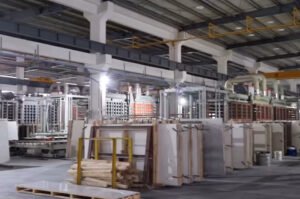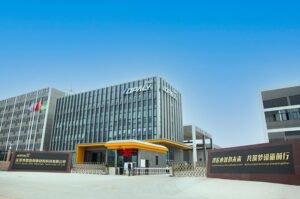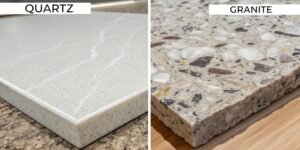Tired of quartz suppliers who deliver inconsistent quality or cause project delays? These problems cost you money and damage your reputation. Choosing a partner who understands your needs is key.
To choose a reliable quartz supplier, you must verify their certifications, like NSF and Greenguard, and check their factory audit reports. You should also assess their ability to handle complex export logistics, like tariffs and customs clearance, which proves their professionalism and protects your bottom line.

But looking at a few certificates on a website is just the first step. True reliability goes much deeper than that. You need to understand the signs of a truly professional and resilient partner, especially when sourcing from a major production hub like China. Making the right choice means asking the right questions, which protects your projects from unexpected issues. So, let's explore what really matters.
Which quartz manufacturer is best?
It can be overwhelming to try and pick the best manufacturer from a sea of options. A wrong choice can lead to poor quality slabs or unexpected supply chain failures.
The best quartz manufacturer is one that consistently proves its commitment to quality through certifications. Look for international standards like NSF and Greenguard, but also verify their compliance with strong domestic standards. For example, a top Chinese manufacturer like Opaly will meet both global and local requirements.

When you're evaluating a manufacturer, especially from China where over 90% of the world's quartz is produced, certifications are your best friend. They are not just logos on a page; they are proof of a commitment to safety, quality, and environmental responsibility. I've worked with clients who initially focused only on one or two well-known international certifications. However, the smartest ones I've partnered with also ask about domestic compliance. In China, this means meeting the strict GB/T standards.
The Importance of Dual Certification
A manufacturer that complies with both international and domestic standards is operating at a higher level. China's "dual circulation" policy encourages manufacturers to produce goods that are fit for both the demanding export market and the growing domestic market. This means their quality control systems are not just for show; they are deeply integrated into their daily operations. A manufacturer who meets China's own tough standards is subject to regular government oversight, which adds another layer of security for you as a buyer.
| Certification | What It Verifies for You | Why It Matters |
|---|---|---|
| NSF | The slab is safe for food contact in commercial kitchens. | Essential for hospitality and healthcare projects, ensures user safety. |
| Greenguard | Low chemical emissions, ensuring better indoor air quality. | Crucial for residential, school, and healthcare buildings. |
| CE Marking | The product meets EU safety, health, and environmental requirements. | A must-have for exporting to Europe, shows broad compliance. |
| China GB/T | Conforms to China's national standards for quality and safety. | Shows the manufacturer is a serious, compliant player in the world's largest market. |
Which company is best for quartz?
Finding a company with a great product is one thing. But finding one that also provides reliable service and transparent communication is the real challenge. A beautiful slab is useless if it's stuck at the port.
The best company for quartz is one that expertly manages the entire export process, from tariffs to documentation. For instance, a Chinese supplier that is transparent about handling the 25% Section 301 tariff for US clients shows financial stability and protects you from hidden costs.
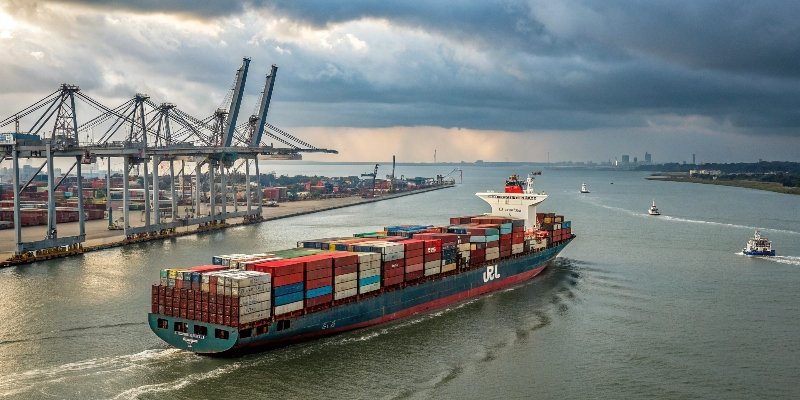
In my 13 years in this business, I've seen that the best partnerships are built on trust and transparency, especially when it comes to money. A company's ability to navigate complex trade policies is a direct reflection of its professionalism. It tells you they are experienced, financially sound, and dedicated to a smooth process for their clients. A common pain point for my partners in North America is the uncertainty around tariffs on Chinese goods. A professional company will address this head-on.
When you are importing from China to the US, the Section 301 tariffs of up to 25% on quartz surfaces are a major factor. A weak supplier might try to hide this cost or be unclear about how it's calculated, leading to a nasty surprise when you get the final bill. I once helped a new client in Mexico who also imports to the US, and he told me a story about his previous supplier. The quote looked great, but the final landed cost was nearly 30% higher because of poorly explained fees and tariffs. This is unacceptable. A reliable partner will provide a quote that breaks everything down clearly.
| Cost Component | What a Reliable Supplier Provides | Red Flag to Watch For |
|---|---|---|
| Product Cost (FOB) | A clear, per-square-meter price. | Vague pricing without unit cost. |
| Tariffs (e.g., Sec 301) | Listed as a separate, clear line item. | "All-in" prices that hide the tariff amount. |
| Shipping & Insurance | A detailed quote from their logistics partner. | Unusually low shipping costs that may have hidden fees. |
| Documentation Fees | All necessary customs document costs are listed. | Unexpected "admin" or "processing" fees later. |
How to identify good quality quartz?
At first glance, many quartz slabs from different suppliers can look almost identical. But poor-quality quartz can chip, stain, or even fade within a few years, which can ruin a project's reputation.
To identify good quality quartz, you need to look beyond the surface and ask for proof. Request factory audit reports and third-party inspection certificates. A top-tier Chinese supplier will also be able to prove compliance with strict environmental laws, which weeds out low-quality producers.
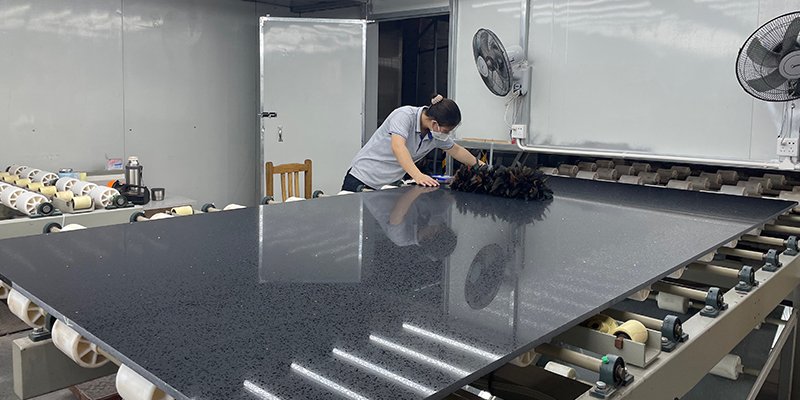
As a procurement manager, you know that quality is more than skin deep. The real quality of a quartz slab comes from the production process: the quality of the raw materials, the consistency of the resin mix, and the pressure of the compaction machines. You can't see these things just by looking at a sample. That's why documentation is so critical. I always encourage my clients to think like an auditor. The documents tell a story about the manufacturer's commitment to quality.
Verifying Quality Through Audits and Compliance
Don't be shy about asking for reports. A confident, high-quality supplier will have them ready. Third-party inspection reports from companies like SGS or Intertek give you an unbiased view of a specific production batch. Factory audit reports give you a wider view of the supplier's overall capabilities. In China, another powerful indicator of quality is compliance with the Environmental Protection Tax Law, effective since 2018. This law forced many smaller, non-compliant factories to close. The ones that survived, like my company, had already invested in modern, environmentally responsible technology. This is a strong sign of a stable, quality-focused operator.
| Document Type | What to Look For | Why It Matters for Quality |
|---|---|---|
| Factory Audit Report | Production capacity, quality control system details, equipment maintenance logs. | Confirms they can handle your order volume with consistent quality. |
| Third-Party Inspection | Results for stain resistance, impact resistance, and color consistency for your specific batch. | Ensures the product you ordered is the product you will receive. |
| Environmental Compliance | Proof of compliance with laws like China's Environmental Protection Tax Law. | Signals a modern, well-managed, and stable factory less prone to shutdowns. |
Is there a difference between quartz manufacturers?
Many buyers assume that most large-scale manufacturers are basically the same. This is a dangerous assumption that can lead to major customs delays and supply chain failures right when you can't afford them.
Yes, there is a huge difference between quartz manufacturers. The best ones have strong export credentials, like a valid export license and AEO status for faster customs clearance. They also have proven plans to manage supply chain disruptions, ensuring your orders arrive on time.
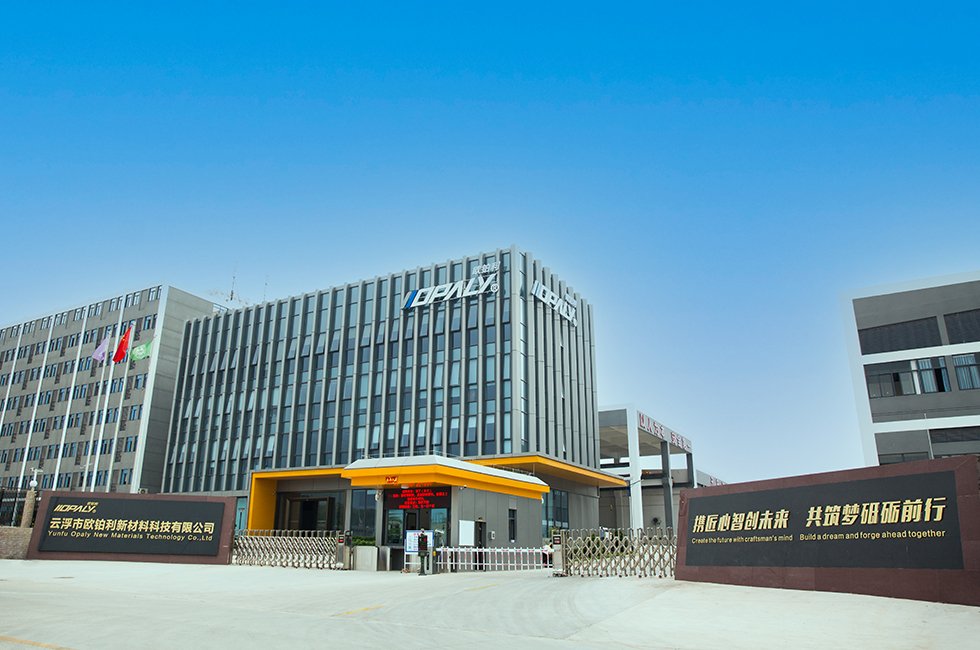
The true difference between an average supplier and a great one becomes clear when things go wrong. A great supplier isn't just a manufacturer; they are an expert logistics partner. Their expertise in export compliance and their ability to adapt to global challenges are what will protect your business. In my experience, a supplier's customs track record is one of the most overlooked but important factors. In China, having AEO (Authorized Economic Operator) status is a big deal. It's a certification given by customs to companies that meet high security and compliance standards.
Assessing Export Expertise and Supply Chain Resilience
AEO status means a supplier is considered a trusted trader, which leads to faster customs clearance and fewer inspections. This can save you weeks of transit time and uncertainty. Beyond that, you need to ask about their resilience. The last few years, with port lockdowns and geopolitical tensions, have been a major test for everyone. I saw firsthand how suppliers with AEO status and strong logistics networks were able to keep products moving, while others had containers stuck for months. A proactive supplier has backup plans. They have relationships with multiple shipping lines and are always monitoring global events to anticipate potential delays. This is the difference between partnership and just a transaction.
| Supplier Capability | Basic Supplier | Top-Tier Supplier (with AEO) |
|---|---|---|
| Customs Clearance | Standard processing, higher chance of inspection. | Priority processing, lower inspection rate. |
| Documentation | Provides standard export documents. | Manages all documentation flawlessly, AEO status streamlines process. |
| Disruption Plan | Limited options, often waits for problems to resolve. | Proactive communication, has alternative shipping routes and plans. |
| Communication | Informs you after a delay has occurred. | Warns you of potential risks and presents solutions in advance. |
Conclusion
Choosing a reliable quartz supplier requires looking past the product. Verify their certifications, trade knowledge, and resilience to protect your projects and build a truly profitable, long-term partnership.



